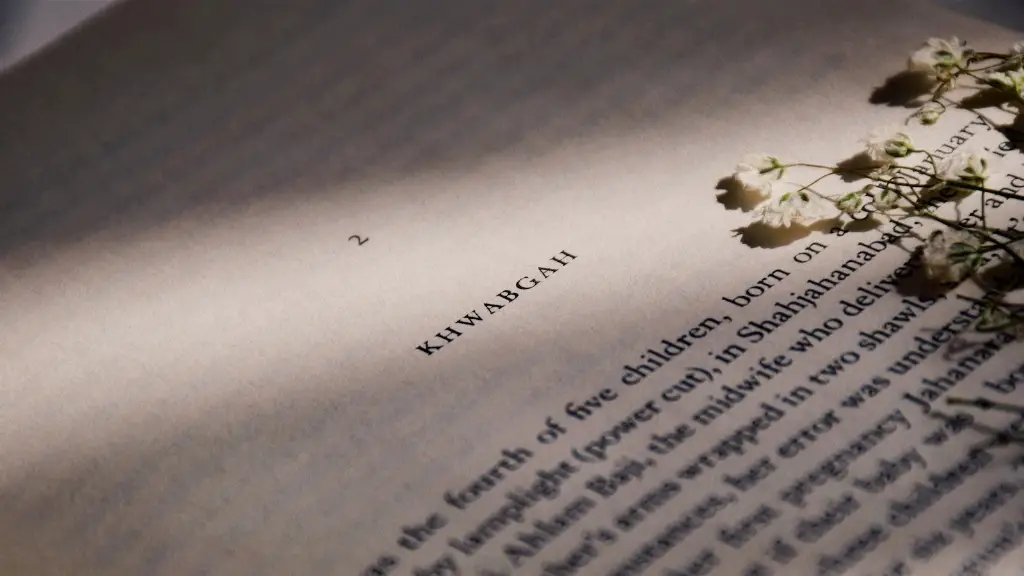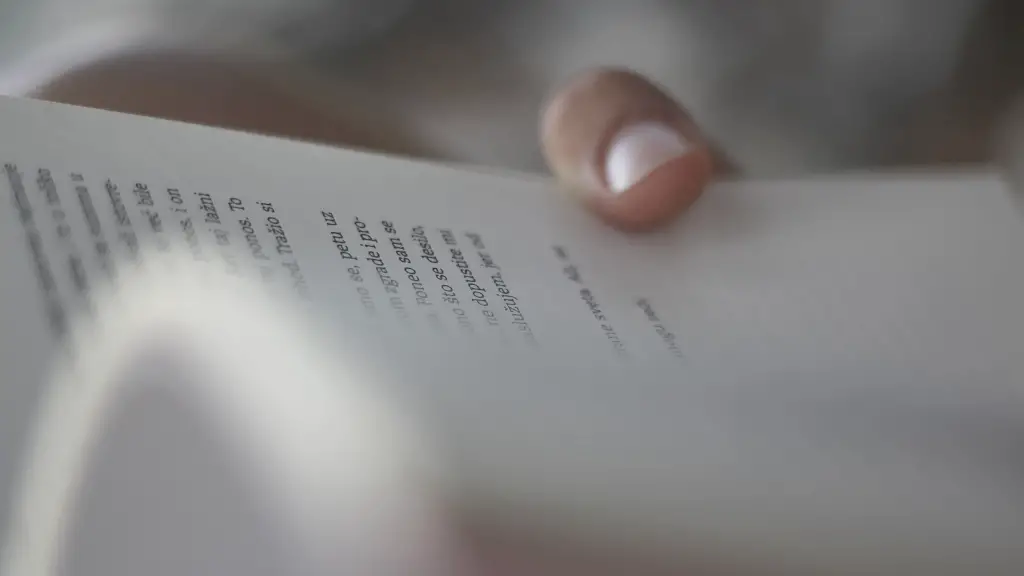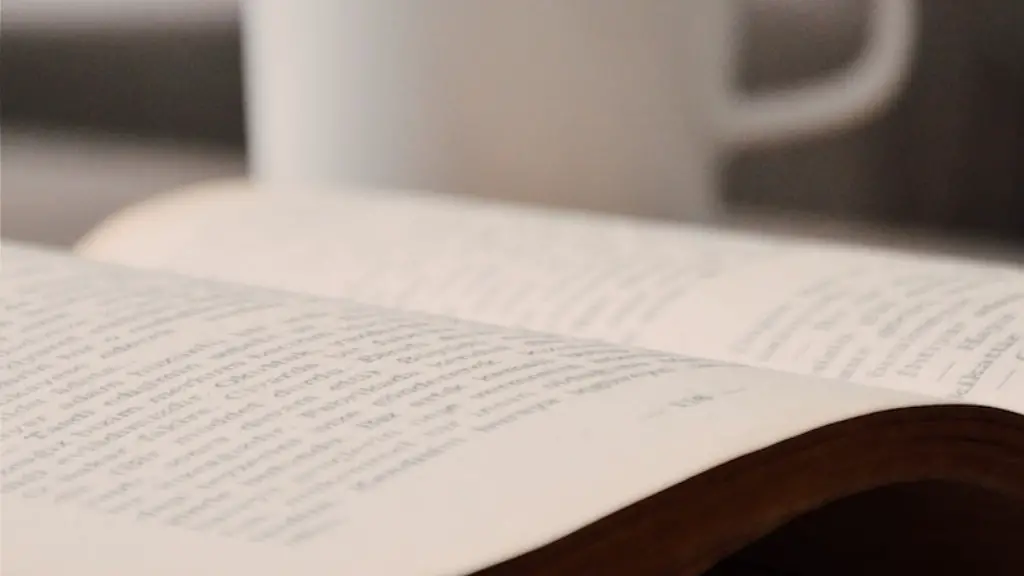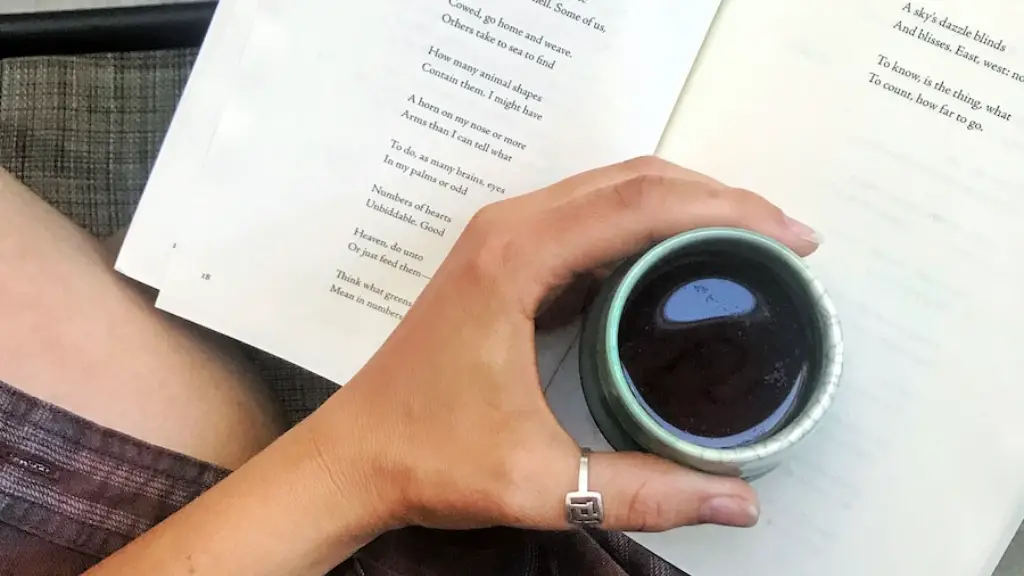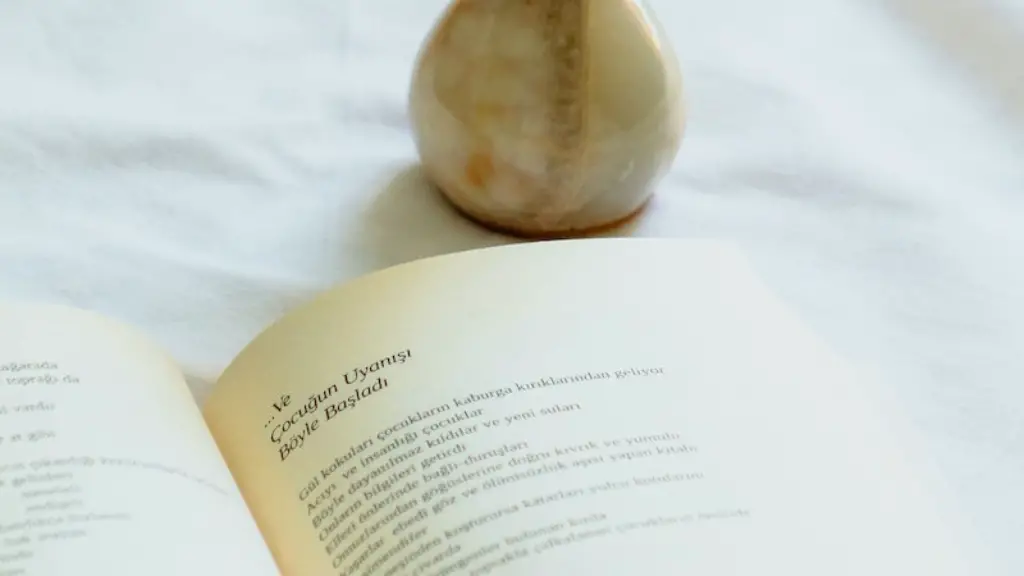Jazz poetry has been a mainstay in the world of literature for centuries. It is a form of written expression that uses jazz music or sounds as a backdrop for poetic expression. Jazz poetry combines elements of jazz and rhythm with pieces of classic poetry. It is an extremely versatile form of writing, allowing poets to express themselves in an individual style, conveying a deep sense of emotion and energy.
In contrast to traditional approaches to poetry, jazz poetry focuses on improvisation. Rather than a set structure or rhyme scheme, the poet allows the poem to evolve as they compose. Jazz poets often use non-traditional language and phrase structure, allowing the words to float with the music. Many jazz poets feel that the sound and feel of the piece should take precedence over any traditional conventions.
The evolution of jazz poetry as an art form can be traced to the work of Langston Hughes – one of the most influential American poets of the 20th century. Hughes’ work incorporated the use of jazz and blues elements in his writing, which he believed enhanced the rhythms of his words. He also used improvisation to craft his poems, often reworking and revising them until he achieved the desired effect. Hughes’ work was a huge influence on later jazz poets and is considered a cornerstone of the genre.
Although jazz poetry can be seen as a separate art form unto itself, it is also deeply rooted in many classic forms of poetry, such as haiku, sonnets, and free verse. Jazz poetry draws from these traditional forms, adding its own unique stylistic and musical characteristics. By blending jazz elements such as vocal improvisation and intense rhythms, jazz poets create works that are both lyrically and musically evocative.
When it comes to creating a jazz poem, there are a few key considerations. Firstly, a jazz poet should pay close attention to the sounds and rhythms of the poem. As with any work of poetry, the poet should strive to create an interesting and compelling flow of words and phrases. Secondly, the poet should be aware of the jazz elements that are being used and use them to full effect. Jazz can be used to create a range of moods and emotions, from energetic and upbeat to deep and reflective.
Ultimately, a jazz poem is a personal expression for the poet, and it can take a lifetime of practice to perfect this type of writing. Jazz poets need to be intimate with both their subject matter and the language of jazz. By exploring the depths of their own passions and emotions, they can create a unique piece that is both moving and memorable.
Link between Poetry and Music
The link between poetry and music has always been strong. From Greek epics to Shakespeare’s sonnets, many great writers have used music as a tool of expression. Jazz poetry takes this concept to the next level, combining poetry and music in a unique and powerful way. The combination of the musical and the poetic is a perfect storm, producing a result that resonates deeply with the audience.
Through this medium, poets are able to go beyond traditional forms of storytelling and create something truly special and moving. Jazz poetry applies the same principles of music, such as improvisation and creative expression, to the art of poetry. The result is a piece of writing that is full of energy and emotion, transcending the bounds of traditional poetry.
By combining jazz music and poetic elements, jazz poets create a powerful, multi-layered form of expression. This type of writing combines the rhythmic intensity of jazz with the deeper meaning of poetry. The words, sounds, and rhythms all come together to create a unique experience for the audience. It can be an exciting and inspiring form of expression that speaks to the listener in a deeply personal way.
Improvisation and Jazz Poetry
Improvisation is a key element of jazz music and jazz poetry. The ability to quickly create and alter sounds is essential in both mediums. In jazz music, musicians often use improvisation as a way to express their own artistic ideas. Similarly, jazz poets use improvisation as an opportunity to explore their own creativity. Instead of adhering to a strict form or structure, jazz poets can try a variety of approaches and experiment with words, sounds, and phrases.
In jazz poetry, there is also a focus on the sounds and rhythms of the words. By focusing on the sonic elements of the poem, the poet can create a powerful piece that speaks to the listener in profound ways. The poet can play with the words, rearranging them and combining them in unexpected ways. This is what gives jazz poetry such a unique and distinctive sound.
Through improvisation, jazz poets are able to push the boundaries of what poetry can be. Rather than relying on traditional structures, they embrace new techniques and styles, exploring their own creativity. In this way, they create pieces of work that are as unique and original as they are.
Jazz Poetry as an Art Form
Jazz poetry is a vibrant, powerful art form that has been around for decades. From Langston Hughes to the present day, jazz poets have used their art to create works of beauty and emotion. By combining elements of poetry and jazz, they open the door to a new kind of creative expression.
Jazz poetry is a deeply personal form of expression, allowing poets to explore their own voices and ideas. Through improvisation, intense rhythms, and creative wordplay, jazz poets create powerful and evocative works. It is a versatile art form that can be used to explore a variety of topics and themes. Whether it’s a sonnet or a blues song, jazz poetry can capture the listener’s emotions in a captivating and stirring way.
Jazz poetry is an continuously evolving art form and has been embraced by poets across the world. By using jazz elements and improvisation, jazz poets create works that are filled with energy and emotion. It is a unique and powerful form of expression that captures the attention of audiences everywhere.
The Future of Jazz Poetry
Jazz poetry has been around for many years, but it is still relatively unknown to many people. Over the past years, there has been an increase in the popularity of jazz poetry, with more people discovering its power and potential. Jazz poetry continues to be a vibrant and compelling art form, with many jazz poets pushing the boundaries of what is possible.
In the future, jazz poetry will continue to evolve, taking on even more creative approaches and styles. The possibilities for the genre are endless and it will only continue to grow in popularity. By exploring the depths of creativity and expression, jazz poets will continue to create works that are both beautiful and stirring.
Jazz poetry has the ability to transport the listener to a place of wonder and emotion. It can be a powerful form of communication and expression and it is sure to be a lasting force in the world of literature. Jazz poets have the opportunity to craft works that are meaningful, evocative, and engaging. With each new poem, jazz poets continue to explore and expand the art of jazz poetry.
The Strengths of Jazz Poetry
Jazz poetry is a powerful form of creative expression that has the ability to move audiences. When done well, it can create a work of art that appeals to the emotions of the listener. It is a versatile art form, allowing poets to incorporate their own unique interpretations and improvisations.
Probably the greatest strength of jazz poetry is its potential to create a deep emotional connection with the audience. By incorporating music and improvisation, jazz poets are able to connect to people in a unique and profound way. It is a form of communication that has the potential to reach audiences on a deep, emotional level.
Jazz poetry has the potential to speak to the hearts and minds of the listener, creating an unforgettable experience. For this reason, it is sure to remain an important and vibrant part of the literary landscape for many years to come.
Conclusion
Jazz poetry is an evocative and powerful art form. By combining elements of jazz and poetry, jazz poets create works of art that are both moving and memorable. It is a form of creative expression that has the potential to reach audiences on a deep, emotional level. Through improvisation and intense rhythms, jazz poets are able to craft works that are profound and inspiring. Jazz poetry is a vibrant and growing art form and it is sure to remain a lasting force in the world of literature.
